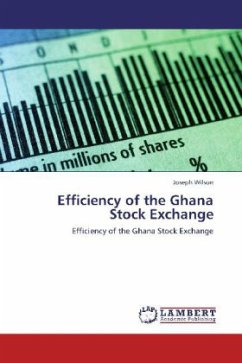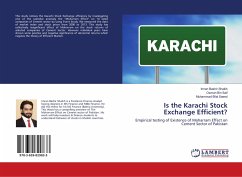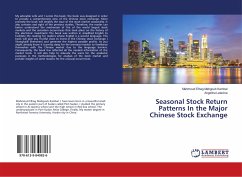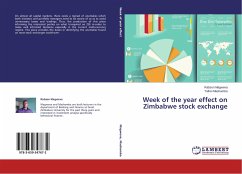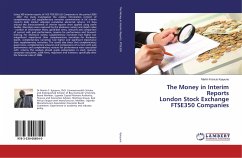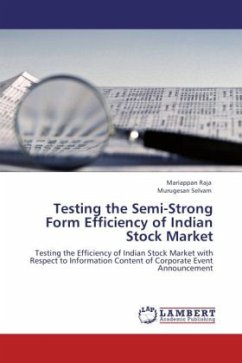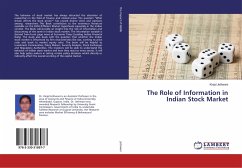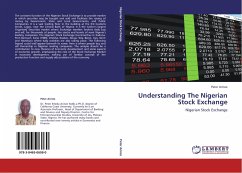This book discusses efficiency of the Ghana Stock Exchange (GSE) to know whether the market has evolved towards some degree of efficiency (i.e. weak form efficiency). It uses daily frequency of the GSE All Share Index for the period of 1992-2004 and applies the Kalman Filter technique to a time-varying parameter model and general autoregressive conditional heteroskedasticity in mean (GARCH-M) of the residual structure. The results show that stock returns in the market exhibit both clustering and persistence in volatility. Also there is positive risk-premium in the market, however, this is not significant. This implies that the market does not price the conditional variance. The market is not weak form efficient for most of the period considered with the exception of the latter parts of 1997 and the early periods of 1999.
Bitte wählen Sie Ihr Anliegen aus.
Rechnungen
Retourenschein anfordern
Bestellstatus
Storno

